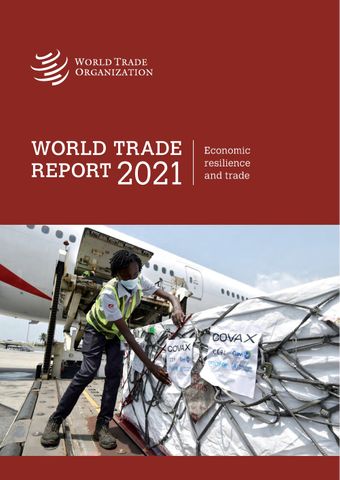- Home
- Books
- World Trade Report 2021
- Chapter
Introduction

- By: World Trade Organization
- Source: World Trade Report 2021 , pp 12-19
- Publication Date: November 2021
- DOI: https://doi.org/10.30875/465a1a50-en
- Language: English
The COVID-19 pandemic highlights a paradox: globalization has created a world that is both more vulnerable and more resilient to crises. On the one hand, economic integration makes us more dependent on far-flung trade networks and more exposed to cascading risks and shocks. On the other hand, economic integration also allows us to diversify suppliers, pool resources, and share information and expertise. The same features that make the global economy susceptible to crises – openness, interdependence, networked technologies – also make it adaptable, innovative, and better able to withstand crises when they hit. Strengthening trade, by making it more diversified, inclusive and cooperative, is also central to making the global economy more resilient to current and future crises, from pandemics to climate change.
-
From This Site
/content/books/9789287051400c005dcterms_subject,pub_countryId-contentType:WorkingPaperSeries -contentType:Periodical -contentType:BookSeries -contentType:ReportSeries105


